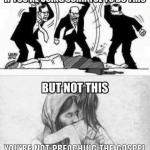Human beings are story tellers. If there is a difference between humans and the great apes, it is that we tell stories. Our brains develop each other by sharing narratives. Prometheus supposedly gave human beings fire and began the technological advancement of humans. Our modern version of the tale is once human beings had fire, we began telling stories around the central fire place. The great monotheistic religions are often called “revealed” religions. God reveals the divine self to prophets who carry out the will of God. But, this is not an accurate description. Our religions are based on stories of how God reveals the divine self. Judaism, Islam, and Christianity rely on stories of these revelations. God reveals by story telling.
The Image of the Story Teller
Genesis 2 lays out a fun story about Adam and God. Adam is made by God who then watches God create other animals. Adam gets the job of naming these creatures. God never contradicts Adam in this story. God never says, “Sorry Adam, that bat is not like a bird. It looks more like a mouse with wings.” (see Leviticus 11:19) The story is how Adam learns there is no companion for him that is like him. God then makes a companion for Adam from his own body (not from the ground). The story is revelation by discovery.
Genesis 1 declares humans (male and female) are made in the image of God. Theologians are not anthropologists so they never ask what these early people would talk about. Would they not tell and retell the stories of how they got to be where they are? At the risk of being accused of reading to much into the text, allow me to say I am reading the texts for what they are. They are stories. Humans, believing ourselves to be in the image of God, acknowledge God relates narratives.
What Is Worship?
Revelation, the final book of the New Testament, takes place during a time of worship. John tells us the vision he receives during this worship time. In this point, he is much like Isaiah who received his call during a time of worship in the Temple. John tells the story of the visions. My question is this. Is worship about story telling? If it is many evangelical protestants need to reevaluate what they do on Sunday mornings. Most believe worship equals music. Practically, no lay members think listening to preaching is worship. Many are not sure about the sacraments as worship. But these last two Sunday morning acts are more linked to story telling than the music.
The worship music is sometimes story telling. But the cycle of worship from Advent to Easter is retelling of the Christian story. We do this by combining music, readings, ritual acts, and preaching during these seasons.
Story As Entertainment
Stories should be entertaining. But they are not meant to be mere entertainment. Aesop’s fables, Jesus’ parables, and “just so” stories are designed to be meditated upon to draw conclusions about living. But, by and large, Americans believe entertainment should shut off the brain. Movies, television programs, video games, and sporting events are delivered for only the profit motive. The more mass appeal an entertainment has the more money it should make. This is why some good television programs lose a lot of what makes them great in order to gain a wider audience. Human response to entertainment is an interesting study.
The down-side is the greater assumption that stories are for entertainment. They do not have any value beyond that. It is the reason people are discouraged from studying arts. There is no practical application of them unless they generate revenue. This is the decline of the culture. We do not tell stories to help us understand ourselves, our world, or our community. This is truly unfortunate. Children rarely play and tell stories about what they did. Our practical/materialist culture is worse for this fact alone.
Ask For The Tale
A friend was working hard as Conference Secretary during one of our annual conferences when his grandson tried interrupting to show him a fish he caught. He asked the boy to wait. The Bishop was sitting near him and said, “Show me the fish and tell me how you caught it.” It was an important spiritual lesson. The next time a child wants to tell about what they did, the fish they caught, or the how someone else cheated in the game listen. If they do not say anything, ask for the tale.
The same applies for anyone in their situation. We do not need just the facts. We need the whole story, however it should be told.












